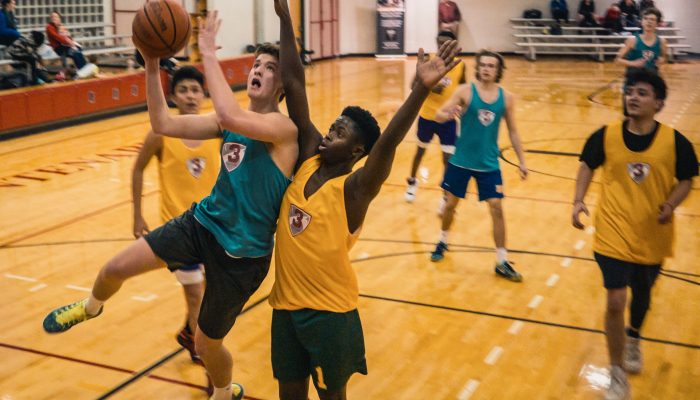It has always been important to know an athlete’s physical condition prior to starting a new season or regimen. That’s a given.
If an athlete has been diagnosed with COVID-19, an additional level of attention should be taken to monitor their heart health, particularly until more is known about the virus’s impact on the heart.
A number of recent articles have raised concerns about an increase in heart disease in people who have had COVID-19. Some have sounded alarms about a COVID connection to sudden cardiac death, with warnings about this “number one killer of young athletes”.
While sudden cardiac death (SCD) does happen and is alarming, thankfully it happens rarely. In terms of death during athletics, it is the leading cause simply because there are few other types of injuries that athletes suffer during practice or competition that result in death. Estimates vary widely based on the population, but sudden cardiac death claims roughly 1 in 40,000 to 1 in 80,000 athletes per year. The most common cause of SCD is hypertrophic cardiomyopathy (HCM) which is an abnormal thickening of the heart wall muscle. SCD can also be caused by abnormal heart rhythms, coronary artery abnormalities, or myocarditis which is an inflammation of the heart muscle.
“Sudden cardiac death and COVID-19 related heart changes are different entities,” said Dr. Elizabeth Davis, a pediatric sports medicine specialist at Orlando Health.
A child could be born with one of the conditions responsible for SCD that is not known at the time of birth, but can have symptoms develop over time as the child ages.
The Importance of the Yearly Physical
All children should have a yearly physical by their pediatrician or family doctor starting at age three. During the annual checkup the physician can ask about and/or look for changes that may be occurring over time or new issues that have come up since the last physical.
Remember to share any history of heart disease in your family with your child’s pediatrician.
Sports physicals generally start being required by school systems somewhere in the late elementary or early middle school years, but these should not be a replacement for a child’s yearly physical exam.
“If your young athlete reports chest pain, shortness of breath or palpitations during physical exertion have your child stop all physical activity immediately and report this to their physician,” advises Dr. Davis.
COVID-19 and the Heart
So, what do we know about a connection between COVID-19 and the heart?
“Not much that is definitive,” Dr. Davis said. “It’s still evolving. The CDC reports heart conditions associated with COVID-19 including myocarditis and other types of inflammatory changes to the heart muscle. These changes can lead to arrhythmias or other conditions that can potentially lead to a problem while playing sports. It is important to understand that traditional causes of SCD are different from the cardiac changes we are seeing resulting from COVID-19 infections. ”
The American College of Cardiology’s Sports and Exercise Cardiology Council makes the following recommendations for when an athlete should return to play after a diagnosis of COVID-19.
- An athlete with mild symptoms who didn’t require hospitalization should rest and recover for two weeks after symptoms subside. Before returning to their sport the athlete should be examined by their doctor and tested for any indication of heart damage.
- An athlete who tests positive during routine screening but is asymptomatic should rest for two weeks and be monitored carefully when they return to play.
“There is a lot of conflicting information about COVID-19 out there right now,” Dr. Davis said. “This is a novel virus and we have very limited data on how it affects kids both in the short and long term. It doesn’t seem to have many ill effects in the short term and, in fact, kids do relatively well compared to adults. but there has been some concern that it could affect the heart.”
Children who have more serious cases of COVID-19, exhibiting two weeks of symptoms, severe symptoms requiring hospitalization, should be screened for cardiac changes before returning to sports, according to Dr. Davis.
With conflicting information, sensational headlines and no definitive data, I recommend you refer to the CDC website, the American Academy of Pediatrics or your family physician as a reliable source of good information about COVID-19.
Be sure to get everything from inCourage. Sign up today!
Dr. Beck is a pediatric sports medicine orthopaedic surgeon. She is the Director of Outreach and Research, Center for Sports Medicine, Orthopaedic Institute for Children and an Assistant Professor at UCLA.


